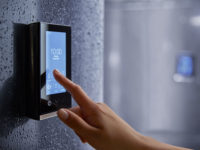I know my face was not the one you were expecting to see here this month. Allow me to introduce myself, Supply House Times readers. My name is Nicole Krawcke and I’m the Chief Editor of the other two Plumbing Group publications, Plumbing & Mechanical and PM Engineer. I often work with Natalie Forster behind the scenes editing Supply House Times. Before my stint with PM magazine, I was a staff member for our sister publication, The AHCR NEWS. All in all, I’ve been writing about plumbing and HVAC contractors for nearly 10 years. So as I fill in for Natalie this month, I want to address the importance of the supplier-contractor relationship.
The symbiotic relationship between HVAC and plumbing wholesale distributors and contractors plays a pivotal role in ensuring successful projects and satisfied customers. Strengthening these relationships requires a strategic approach focused on communication, collaboration and mutual trust.
This is an extremely relevant topic today. In fact, Plumbing-Heating-Cooling Contractors — National Association (PHCC) hosted a general session on it during its PHCCCONNECT2023 conference in Cleveland, Ohio last October. The roundtable discussion, “Collaborative Connections: Strengthening Supplier-Contractor Relationships for Success,” was moderated by Robert Grim, senior vice president, sales, InSinkErator, and covered topics ranging from emerging trends, technologies, pricing and more.
One topic of particular note was value-added services.
“A lot of companies can move boxes, but it's important that we've got the right products at the right time for the right price. And that's just the basics,” said Kathyrn Poehling-Seymour, CEO and president, First Supply. “So, what’s it mean to be a value-added partner? There are all sorts of things that contribute to this. We just opened a state-of-the-art training facility, which was immensely important not only for our current customers but for area trade schools as well. Students have already been training in that facility, getting a taste of the industry and gaining hands-on experience.
“Additionally, we can now teach lessons virtually,” she continued. “Somebody up in Brainerd, Minnesota, can stream into our facility while training classes are happening and learn for themselves. Maybe a manufacturer on the East Coast is streaming as well, and we’ve created this connected network of people who are learning, growing, developing, and hopefully buying more of the products they’re learning about.
“Above all of this, it’s all about our people,” she added. “It's the people who show up at our facilities, every day. The outside salespeople, inside salespeople, credit team, delivery drivers, kitchen and bath store design teams, etc., those are the people who are really adding value to what is happening out in the field every day because they’re taking care of the end users.”
Technology in the HVAC and plumbing industry is constantly evolving, and contractors rely on suppliers to provide them with access to the latest products, technical support and training opportunities. By investing in contractor education and skill development, suppliers empower contractors to deliver superior service to their clients while enhancing their own reputation as industry leaders. Moreover, ongoing technical support ensures that contractors can address any issues or challenges they encounter during the installation process promptly. That is a huge value-added service.
Dan Callies, president, Oak Creek Plumbing Inc., acknowledged the expense of providing these value-added services for contractors during the discussion.
“Has anyone heard of Pappy Van Winkle? It’s a wonderful bourbon, and they have saying that says, ‘We’ll make fine bourbon at a profit if we can, at a loss if we must, but we’ll never sacrifice quality.’ We must strive to follow this as well,” he said. “There is an expense to provide these value propositions, they’re not free. Whether it's time or cost, everyone has to contribute. It's just part of the cost of doing business. However, if you choose not to offer such advantages, and your customer experience is lacking, then expect your advertising budget to go through the roof. Marketing is the tax you pay for not being remarkable, and without value-added services, you’ll be doing a lot of marketing.”
Other common themes of the panel discussion were that communication, loyalty and an understanding of each other’s perspectives are key to effective relationships.
Effective communication lies at the heart of any successful relationship. Clear lines of communication facilitate transparency, minimize misunderstandings and foster a sense of partnership. Additionally, it is essential for suppliers and contractors to understand each other's needs, constraints and expectations. Suppliers should make an effort to comprehend the unique challenges faced by contractors, such as tight deadlines, budget constraints, project complexities and labor challenges. This brings us right back around to why communication is so important — communicating the challenges you may experience on the supplier side will help build trust with contractors.
As the industry continues to evolve, investing in these relationships with plumbing and HVAC contractors will remain critical for driving growth and delivering exceptional HVAC solutions that exceed customer expectations.
And, if you’re interested in addressing Plumbing & Mechanical’s contractor audience in a guest editorial, I welcome you to reach out to me at krawcken@bnpmedia.com.





